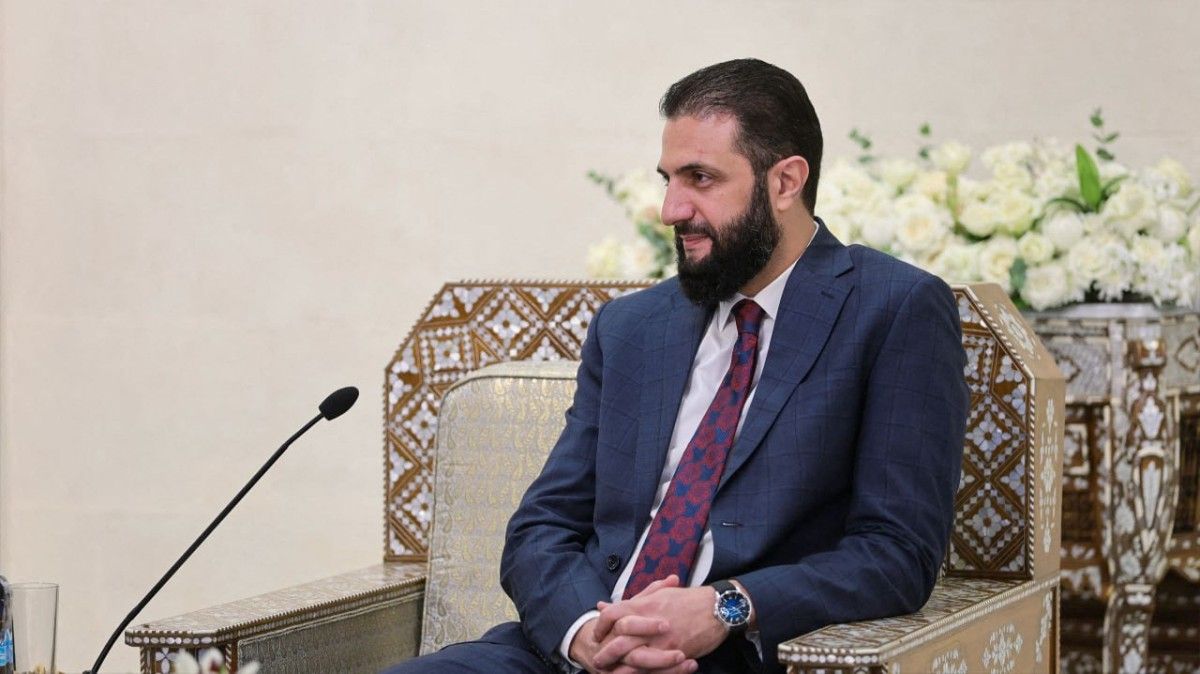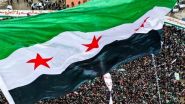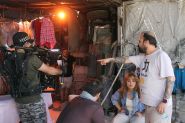- Home
- Middle East
- Syria's Sharaa Recognised 'Legitimate Demands' of Alawite Protesters

Following major protests by the Alawite community, Syrian President Ahmad al-Chareh acknowledged legitimate demands and called for national unity, amid an upsurge in sectarian violence and the colossal challenges of post-war reconstruction. ©SANA / AFP
Syrian President Ahmed al-Sharaa said on Thursday that protesters had "legitimate demands", state media reported, days after thousands took to the streets to denounce violence against the country's Alawite minority.
The demonstrations earlier this week in several cities along Syria's coast -- the heartland of the country's Alawites -- were the largest by the community since the overthrow of Bashar al-Assad last year.
Assad himself is an Alawite and some of the religious minority prospered under his rule.
In the months since his fall, there has been several incidents involving anti-Alawite violence -- the worst of which involved the killing of more than 1,700 people in coastal Syria in March.
The protests followed the fresh outbreak of unrest in the religiously diverse city of Homs in central Syria, which was triggered by the murder of a Sunni Bedouin couple that was blamed on Alawites, after sectarian graffiti was found at the scene.
Speaking during a phone call with the governor of the coastal province of Latakia, Sharaa said "we have observed that there are many legitimate popular demands, although some are politically motivated, to put it politely," the official SANA news agency reported.
Sharaa -- a former jihadist whose Islamist militants led the overthrow of Assad -- said his government was "fully prepared to listen to all the demands and to seriously consider them".
His rise to power has unnerved many in Syria's various minority populations, fears which were exacerbated by violence targeting Alawites and clashes between Sunni Bedouin and the Druze in southern Syria earlier this year.
"National unity is a fundamental pillar and indispensable," Sharaa said.
"The time has now come to put an end to divisions sown in the minds of Syrians for over sixty years," he added.
From the 1963 coup that brought the Baath Party to power until the fall of Assad last year, Syria was ruled by Alawites.
Since taking power, Sharaa has tried to reassure the international community that he would protect the rights of the country's many minorities.
He has also, however, insisted on a strong, centralised state and refused demands for autonomy from Syria's Kurds.
His government also tried to enforce its authority in Druze-majority Sweida in the south, sparking clashes and strikes launched by Israel.
Sharaa said Syria's coast was a priority but "cannot be governed by an independent authority, isolated from the rest of the regions" because "a Syria without access to the sea would lose a fundamental part of its strategic and economic strength".
Crippled by more than a decade of civil war and international sanctions, Syria's economy remains in tatters.
The new government is currently seeking funds for the reconstruction of the country, which the World Bank has estimated could cost $216 billion.
AFP
Read more



Comments